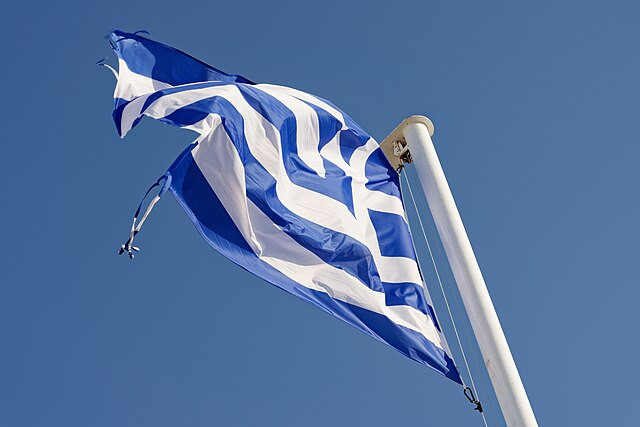Hundreds of thousands of people took to the streets across Greece on Friday, marking the second anniversary of the country's deadliest train crash with mass protests and a nationwide strike that halted flights, shut down businesses, and disrupted public services. Demonstrators expressed frustration over what they see as government inaction and a failure to hold anyone accountable for the disaster that killed 57 people in February 2023.
The protests, among the largest in recent Greek history, saw tens of thousands gathering in Athens' Syntagma Square in front of parliament. Protesters chanted "Government of murderers" and "Text me when you get there," referencing the last messages sent by victims to their families before the crash. Others held black balloons or spray-painted the names of the dead in red on the ground.
The 2023 crash, which involved a passenger train colliding with a freight train near the Tempi gorge in central Greece, has become a symbol of public distrust in government institutions. On Thursday, a state inquiry found that key safety gaps that contributed to the accident remain unresolved two years later. A separate judicial investigation is still ongoing, and no one has been convicted.
Prime Minister Kyriakos Mitsotakis' government, re-elected just months after the disaster, has faced sustained criticism from victims' families and opposition parties for not initiating a parliamentary inquiry into potential political responsibility. In a Facebook post on Friday, Mitsotakis wrote, "That night, we saw the ugliest face of the country in the national mirror. Fatal human errors met with chronic state inadequacies." He reiterated his administration's commitment to modernizing Greece's railway network but did not address demands for a parliamentary probe.
The protests remained largely peaceful until clashes erupted in Athens when a group of hooded demonstrators hurled petrol bombs at police near parliament. Riot police responded with tear gas and water cannons as running battles spread into surrounding neighborhoods. Authorities reported more than 80 detentions and at least five injuries in the capital alone. In Thessaloniki, Greece's second-largest city, a massive crowd released black balloons in memory of the victims, and similar demonstrations occurred in cities nationwide.
Anger over the government's handling of the disaster has fueled broader political discontent. Opposition parties accuse officials of covering up key evidence and delaying investigations. Next week, the Greek parliament is set to debate whether to establish a special committee to examine the crash and potential political accountability.
A Pulse poll released this week found that 82% of Greeks consider the train crash one of the country's most pressing issues, while 66% said they were dissatisfied with the investigation's progress. "Every day, the monster of corrupt power appears before us," said Maria Karystianou, who lost her daughter in the crash and now leads an association of victims' families.
The 24-hour general strike brought Greece to a standstill. Air traffic controllers grounded all domestic and international flights, while seafarers, train drivers, teachers, doctors, and lawyers joined in. Theaters canceled performances, and businesses shut their doors in solidarity.
For many protesters, the fight is deeply personal. "We're here because we're parents... tomorrow it might be our children," said Litsa, a 45-year-old nurse attending the Athens demonstration. Anastasia Plakia, who lost two sisters and a cousin in the crash, posted a photo of them together on Facebook with the caption: "730 days without you; 730 days of sadness, pain, and rage."




